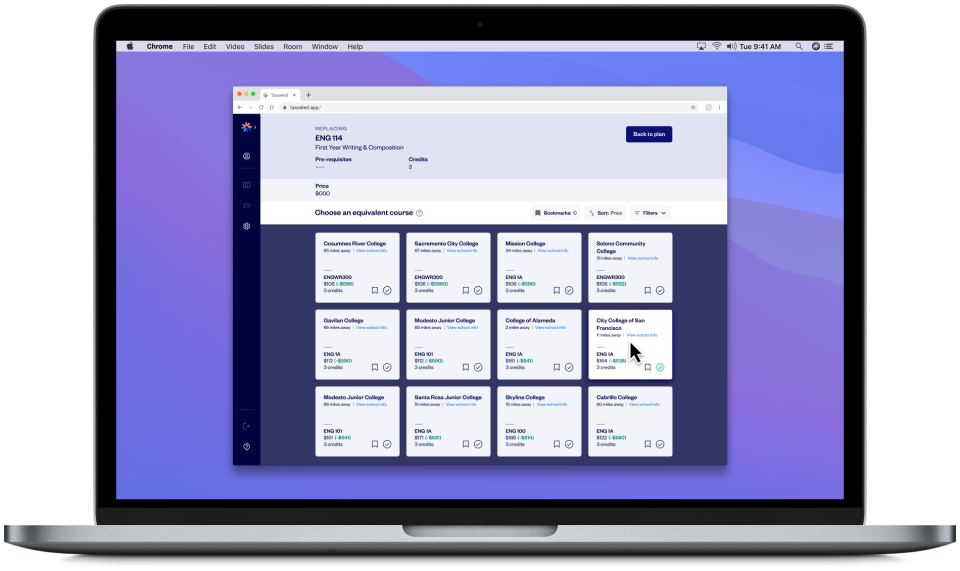Tasseled wants to help college students get their lives, and credits, together
When Vipul Patel lost half of his college credits while transferring from Florida Institute of Technology to Boston University, he began digging for answers. Patel soon stumbled upon equivalency tables, where universities track which courses from other institutions can be counted for credit during a transfer process. While seemingly innocuous, the tables gave him key data of where Boston University draws a line around accepting credits from other institutions -- and where it contradicts itself.
He eventually appealed to BU, a school I also attended, and pointed out that the university accepted credit from universities that accepted FIT's coursework. The argument worked, and the small-yet-lucrative win inspired his other transfer friends to appeal for their once-lost credits.
The resulting buzz, and the fact that 39.4% of transfer students lose all their credits when they transfer, gave Patel the confidence to turn his tool into a startup. Today, he and his co-founder, Nelson Huang, announced the launch of Tasseled, a free platform to help students create and customize their own college plans with credits in mind.
Tasseled, which opened up a waitlist for its private beta today, is a member of the All Turtles product studio, the incubator behind mmhmm and Carrot. Patel says that the company has raised $750,000 in funding since its founding in 2018.
The service helps students identify which credits they need to graduate, and then helps them substitute expensive university classes with cheaper, more accessible community college equivalents. Taking a note from Patel’s experience, Tasseled is built with transfer students in mind: it highlights ways to fit for-credit education from different places, either an online course or local community college class, into a four-year university plan.
Tasseled is pitching its service to college students and high school students who are planning for college. The team collected, and centralized, information about application deadlines and tuition to help students turn their planning process into "a weekend."

Image Credits: Tasseled
“We’re already expecting a bunch of kids [who] are 17 and 18 to make a multi-hundred-thousand-dollar financial decision,” Patel said. “And, that’s kind of crazy. They're simply making life-altering decisions with no information and our hope is that we can just close that.”
Tasseled's bet on community colleges filling in gaps for students is further proof that financial inclusion is a big focus for the startup. On one end, extinguishing the stigma around community colleges will help more students lean on their local schools (and less on loans) to complete their degrees. On the other end, students who transfer from community colleges can sometimes come from low-income backgrounds, so Tasseled helps them make sure their for-credit work doesn't go unrecognized by wherever they end up.
The startup has not figured out a business model yet, but could monetize using referral fees for any community college that gets a student through its platform.
Tasseled has evolved multiple times, even in its short life. It first started as an appeals tool, offering students a hacky way to get credits counted. Then, after students left campus in May, Tasseled pivoted to a full-stack solution to help colleges make transfer decisions quicker. Then, COVID-19 dried up an already dehydrated sales cycle within higher-ed, so that didn’t work either. Ultimately, Tasseled landed on returning to a simple but massive mission: help students save money.

Image Credits: Tasseled
Fittingly, Patel says that Tasseled's early days began on the Boston University campus. The startup worked with Director Ziba Cranmer over at BU Spark, an initiative for student entrepreneurship, to get a sense of how to build and how to talk to users. Cranmer introduced the co-founders to Phil Libin, a Boston University alum and the co-founder of All Turtles, at a Spark event.
"In startup mode, you feel like there's every single avenue to go down, and both [of them] were the most impactful people at making sure I stay clear about building products for students," he said.
